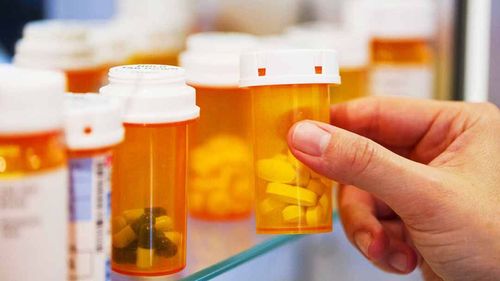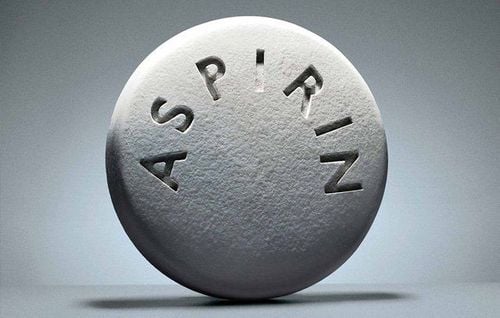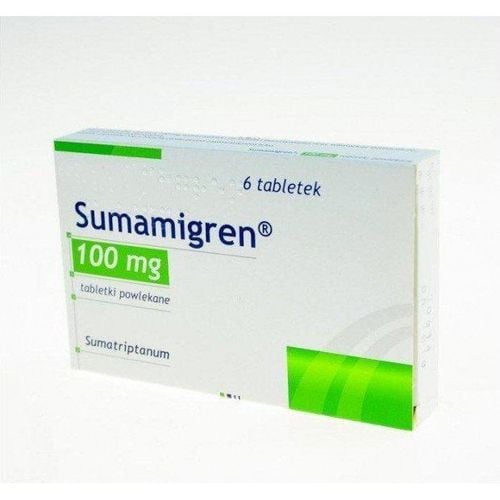This is an automatically translated article.
Mianpangic is a non-steroidal anti-inflammatory drug (NSAID) and is used to treat mild to moderate pain such as osteoarthritis, postoperative pain, acute pain including muscle pain and back pain , toothache and menstrual pain.1. What is Mianpangic?
What is Mianpangic drug? Mianpangic has the main ingredient is mefenamic acid 250mg, belongs to the group of pain relievers, antipyretics, non-steroidal anti-inflammatory drugs, drugs for the treatment of Gout and osteoarthritis. Mianpangic is often prescribed by doctors to relieve body pain and mild to moderate neuropathic pain such as traumatic pain, headache, migraine, postpartum pain, postoperative pain, toothache, pain and fever followed by inflammation, dysmenorrhea, menorrhagia with spasmodic or hypogastric pain.
Mechanism of action: Mefenamic acid has anti-inflammatory, analgesic and antipyretic activities. It works by stopping the body's production of substances that cause pain, fever, and inflammation by blocking the synthesis of prostaglandins and their release during inflammation.
2. Dosage and how to use Mianpangic
How to use: The drug is prepared in the form of hard capsules and used orally, after eating to avoid bad effects on the stomach and intestines.
Dosage of the drug:
The dose prescribed will be based on the patient's health condition and how well the body absorbs the drug. To reduce the risk of stomach bleeding and other side effects, doctors recommend that patients take Mianpangic at the lowest dose and for the shortest possible time. Patients do not arbitrarily increase the dose of the drug or use it for a longer time than prescribed.
Usual dose applied from 250 mg - 500 mg x 3 times / day. The course of Mianpangic drug therapy should not last more than 7 days.
Contraindications :
Do not use for patients with kidney failure and liver failure Do not use for patients who are allergic to mefenamic acid or any other ingredient of Mianpangic. Mefenamic acid is contraindicated in individuals with a history of hypersensitivity reactions to this drug or to other NSAIDs (eg, aspirin) with manifestations such as urticaria and asthma. Do not take the drug with people with peptic ulcer or chronic inflammation of the gastrointestinal tract, heart failure ; after coronary artery bypass surgery.
3. Overdose and treatment measures
Overdose: Symptoms of overdose include kidney failure, gastrointestinal problems or bleeding, rash, confusion, hallucinations, dizziness, seizures, and loss of consciousness.
Treatment: Most cases of overdose will be treated with induction of vomiting, gastric lavage, and electrolyte control.
4. Side effects when using Mianpangic drugs
Common side effects when using the drug such as nausea, vomiting, diarrhea, abdominal pain and indigestion; rash, itching, headache, dizziness, depression and temporary leukopenia. Potentially serious adverse events may include gastrointestinal perforation, peptic ulceration, hematemesis, skin reactions (rash, itching, swelling; in rare cases, epidermal necrolysis). In case of patients suffering from asthma, taking the drug can make asthma worse. For patients with epilepsy when taking high doses, the drug can lead to convulsions, so it should be avoided. used in patients with epilepsy.
5. Be careful when using Mianpangic thuốc
In the process of taking the drug, patients who use alcohol and tobacco daily can cause stomach bleeding, increasing the risk of stomach bleeding. Therefore, it is necessary to limit alcohol and smoking during this time. Use this medicine with caution in the elderly, due to the increased risk of stomach and intestinal bleeding, kidney problems, heart attack and stroke when using this medicine. For pregnant women: All non-steroidal anti-inflammatory drugs cause problems affecting the fetus and causing problems such as labor and lack of amniotic fluid. Therefore, Mianpangic is not recommended for use during pregnancy from 20 weeks until delivery. For women who are breast-feeding: The drug can be excreted in breast milk, so consult your doctor before use. Tell your doctor if you have or have ever had asthma, especially if you have frequent stuffy or runny nose or nasal polyps (swelling inside the nose); heart failure; swelling of hands, feet, ankles.
6. Drug interactions
Drug interactions that may occur during use are as follows:
Warfarin: Used in combination with anticoagulants, mefenamic acid increases unwanted side effects. Effect on test results: While taking this medicine, Mianpangic may affect the results of the urine bilirubin test. Ciclosporin and Tacrolimus: Mianpangic may increase the nephrotoxicity of ciclosporin and tacrolimus. Antihypertensives: When combined with antihypertensive drugs such as ACE inhibitors, sartans and diuretics may decrease efficacy as well as increase the risk of nephrotoxicity. Abacavir: Mefenamic acid may decrease the rate of excretion of Abacavir, which may result in higher serum concentrations. Abametapir: Mefenamic acid serum concentrations may be increased when it is combined with Abametapir. Abatacept: The metabolism of Mefenamic acid may be increased when combined with Abatacept Abiraterone: The serum concentration of Mefenamic acid may be increased when it is combined with Abiraterone Abatacept: The metabolism of Mefenamic acid may be increased is increased when combined with Abatacept Acebutolol: Mefenamic acid may decrease the antihypertensive activity of Acebutolol: The severity of side effects may be increased when Mefenamic acid is combined with Aceclofenac Aceclofenac: Risk or the severity of adverse events may be increased when Mefenamic acid is combined with Acenocoumarol: The risk or severity of bleeding and bleeding may be increased when Mefenamic acid is combined with Acenocoumarol. Acetohexamide: Acetohexamide's protein-binding ability may be reduced when combined with the active ingredient Mefenamic acid. Acetylsalicylic acid: The therapeutic efficacy of Acetylsalicylic acid may be reduced when used in combination with Mefenamic acid. Mianpangic belongs to the group of non-steroidal anti-inflammatory drugs (NSAIDs) and is used to treat mild to moderate pain. To ensure the effectiveness of treatment and avoid unwanted side effects, patients need to strictly follow the instructions of the doctor, professional pharmacist.
Follow Vinmec International General Hospital website to get more health, nutrition and beauty information to protect the health of yourself and your loved ones in your family.
Reference source: webmd.com













